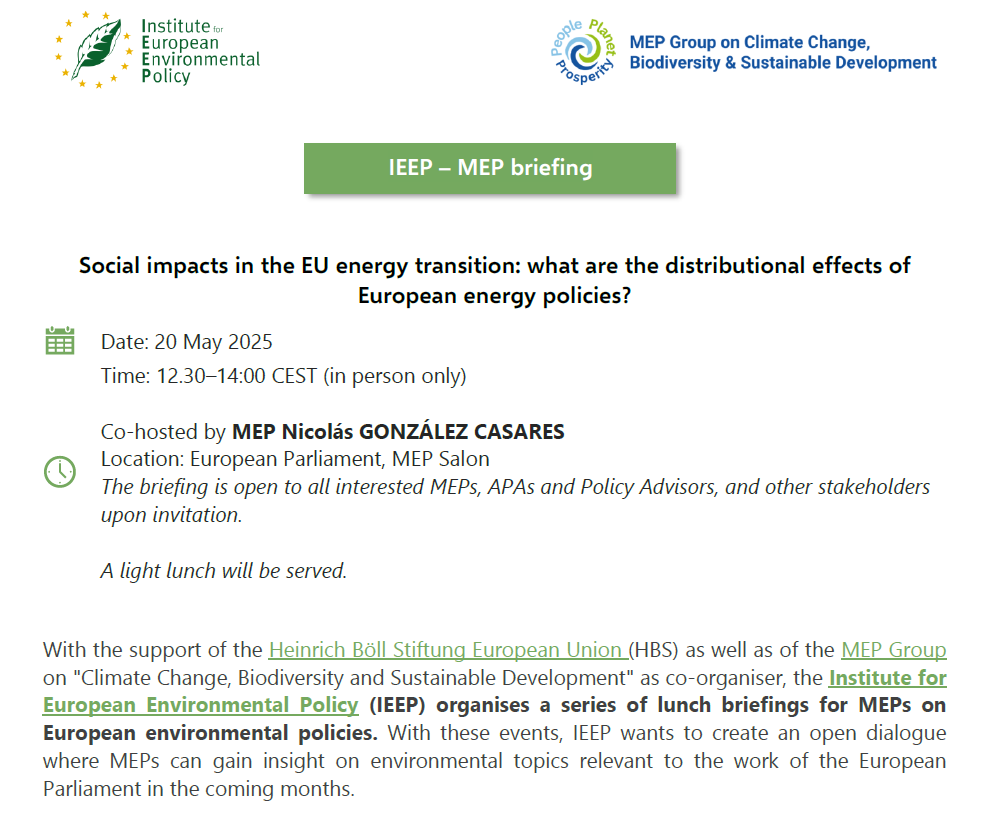About the event
The focus of this lunch briefing will be on two initiatives announced in the mission letter to the Commissioner for Energy, namely the Citizens Energy Package and European Affordable Housing Plan, also touching upon the pending Energy Taxation Directive. The briefing will be organised around the following questions:
– What are the most relevant distributional effects of EU energy transition policies?
– How can EU legislation better enable citizens (and businesses) to tap directly into the benefits of the energy transition?- Which policy instruments and/or market offers are needed to target those consumers who are most in need, avoiding regressivity?
– How to strengthen acceptability and democratic participation in an accelerated energy transition?
– What role for local governments in securing access to affordable renewables and energy efficient housing?
The EU is in urgent need of achieving a step change in societal understanding of the distributive repercussions of the transition to climate neutrality and identifying effective and actively supported policy interventions to accompany climate action so that no one is left behind.
Research approaches must be harmonically combined with a continuous social dialogue, ensuring that European policies foster open science, model procedural justice, and build understanding, trust and capacity among citizens and other stakeholders concerning the transition to climate neutrality.
European public bodies, industry, civil society and researchers—i.e. the quadruple helix—are in line to promote a shared vision, inspiring them towards the common goal of achieving climate neutrality. Challenges from the Just transition include technical, economic, and social/equity dimensions for firms, workers, households and public bodies, and the potential distributional impacts of the Clean Industrial Deal, EU Green Deal, NextGenerationEU and Fit for 55.
Producing actionable and context specific policy recommendations is key to effectively managing competitiveness and distributional trade-offs associated with the transition across Europe and in specific countries and sectors. Moving well beyond standard public opinion analysis of preferences for climate action, policymakers need a clear understanding of the conditions under which households, firms, and unions will actively support these initiatives to transition Europe to carbon neutrality.


